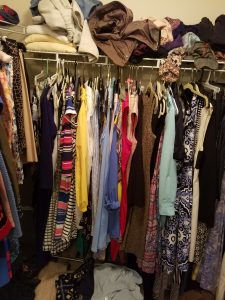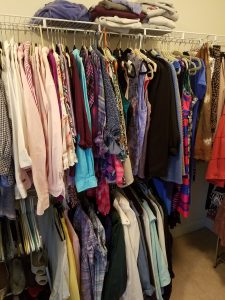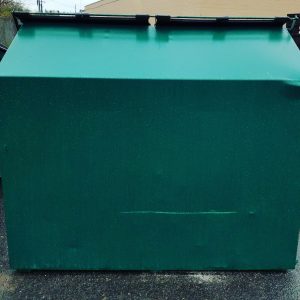Wasting Away
Growing up most of us are taught not to waste anything because there are people starving, that people would love to have what we have so be sure you don’t waste it. I remember the nuns saying don’t waste your food there are people starving and some classmate would say under his/her breath “then why don’t we send it to them”, GREAT idea and this concept of sending things we don’t use to someone who could use it is most easily translated to our “stuff”.
I work with people who possess an overabundance of “stuff” and when I ask them why they keep so many pieces of a certain item, many times, I’m met with a shrug and “I don’t know”. I encounter tens and tens of collared knit shirts, tens of multiples of tens of T-shirts (I might go so far as to say hundreds of T-shirts) and lots and lots of black pants. People don’t know what to do with these item s and they don’t want to be wasteful, so they don’t deal with the overabundance of items they possess.
What if we looked at being wasteful in a different context? What would you say if I said to you these items are being wasted because they are shoved into the back of your drawer or closet and NO ONE is using them, and they are wasting away when they could be put to good use by someone else.
I know that if I find T-shirts stuffed into the bottom of your hall closet you are wasting them. I know that if I find collared knit shirts hanging in your laundry room covered in dust you are wasting them. I know that if I find boxes of socks in the basement covered in mouse poop you are wasting them. I know that if I find a total of 270 shirts in your home in various rooms that 240 of them are being wasted. I know that if I find cans of tomato paste, vegetables, tuna fish, or any food item, past their expiration date they are being wasted.
Your money is being wasted. If you stopped buying excess what could you do with that wasted money? Would your bank account have a positive number? Would you be able to go out for a beautiful meal once a month? Would you feel better because you contributed to a soup kitchen or homeless shelter? Would you be able to volunteer somewhere with the hours not wasted buying items you don’t need?
Be conscious of your spending, donate what you can, enjoy experiences.
Stop Waste NOW. You can do it!




